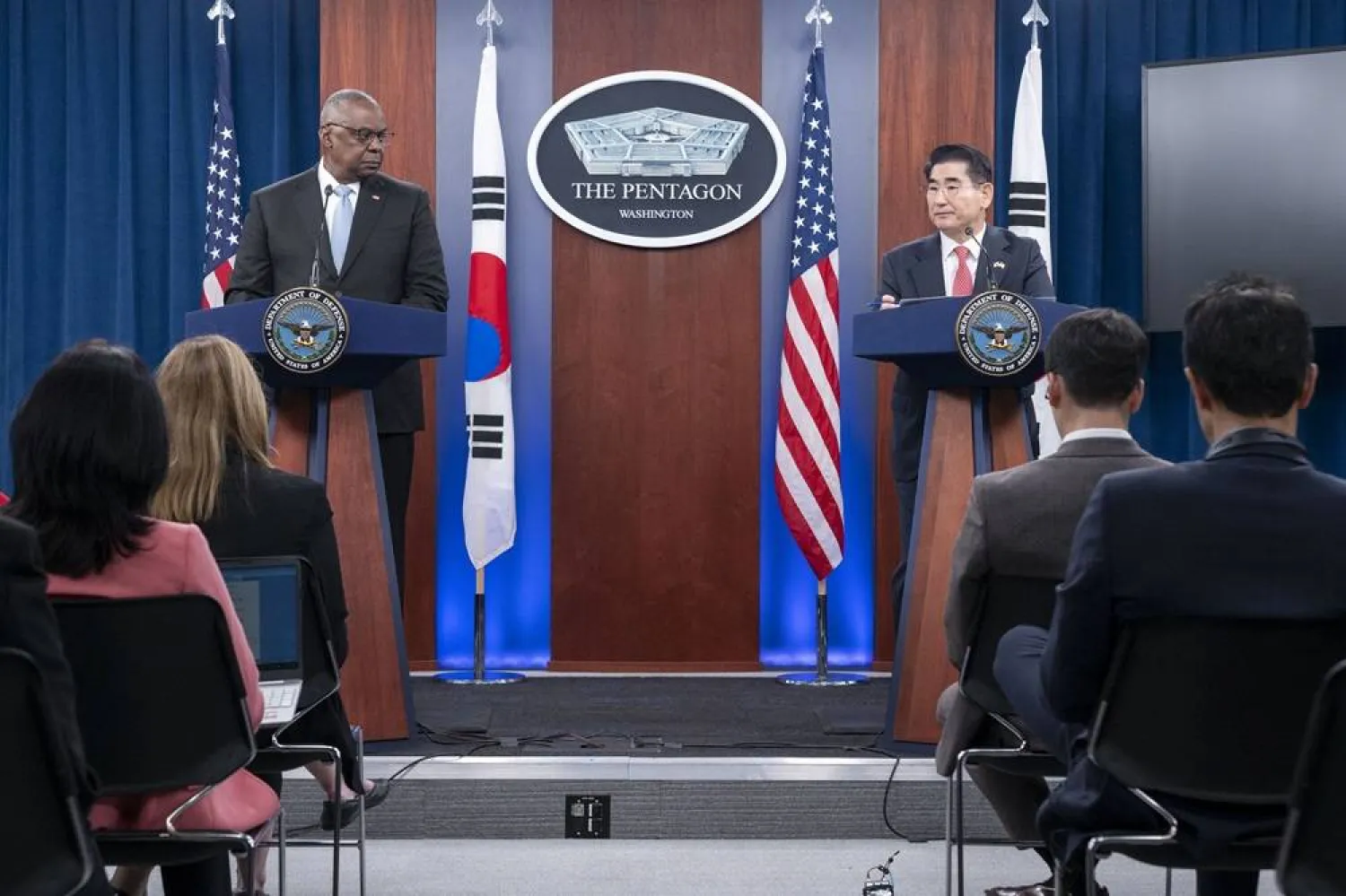Defense Secretary Lloyd Austin said Wednesday that North Korean troops wearing Russian uniforms and carrying Russian equipment are moving to the Kursk region near Ukraine, in what he called a dangerous and destabilizing development.
Austin was speaking at a press conference in Washington with South Korean Defense Minister Kim Yong-hyun, as concerns grow about Pyongyang’s deployment of as many as 11,000 troops to Russia. The US and South Korea say some of the North Korean troops are heading to Russia’s Kursk region on the border with Ukraine, where the Kremlin’s forces have struggled to push back a Ukrainian incursion.
Austin said “the likelihood is pretty high” that Russia will use the North Korean troops in combat.
He said officials are discussing what to do about the deployment, which he said has the potential to broaden or lengthen the conflict in Ukraine. Asked if it could prompt other nations to get more directly involved in the conflict, he acknowledged that it could “encourage others to take action” but he provided no details.
Kim said he doesn't necessarily believe the deployment will trigger war on the Korean Peninsula, but could increase security threats between the two nations. There is a “high possibly” that Pyongyang would ask for higher technologies in exchange for its troop deployment, such as in nuclear and ballistic missile capabilities, he said, speaking through an interpreter.
North Korea’s move to tighten its relationship with Russia have triggered alarms across the globe, as leaders worry about how it may expand the war in Ukraine and what Russian military aid will be delivered to Pyongyang in exchange.
“They're doing this because (Russian President Vladimir) Putin has lost a lot of troops,” Austin said, adding that Moscow has a choice between mobilizing more of its own forces or turning to others for help. Already, he noted, Russia has sought military weapons from other nations. Those include North Korea and Iran.
The US has estimated there are about 10,000 North Korean troops now in Russia. Seoul and its allies, however, assess that the number dispatched to Russia has increased to 11,000, according to a senior South Korean presidential official, who spoke on condition of anonymity during a background briefing.
More than 3,000 of them are believed to have moved toward combat zones in western Russia, the official said, without specifying the locations. Some North Korean advance units have already arrived in the Kursk region.
A Ukrainian official told The Associated Press that North Korean troops are currently stationed 50 kilometers (30 miles) away from the Ukrainian border with Russia. The official was not authorized to disclose the information publicly and spoke on condition of anonymity. The official did not provide any additional detail.
Russia has had to shift some resources to the Kursk border region to respond to Ukraine's offensive there. US leaders have suggested that the use of North Korean forces to augment Russia's defenses indicates that Moscow’s losses during the more than two-year war have significantly degraded its military strength.
North Korea has also provided munitions to Russia and earlier this month the White House released images it said were of North Korea shipping 1,000 containers of military equipment there by rail.
A key worrisome question is what North Korea will get in return for providing the troops. But officials have yet to say specifically what Pyongyang may have requested or Moscow has offered.
Austin and Kim are scheduled to meet with Secretary of State Antony Blinken and South Korean Foreign Minister Cho Tae-yul at the State Department on Thursday.









